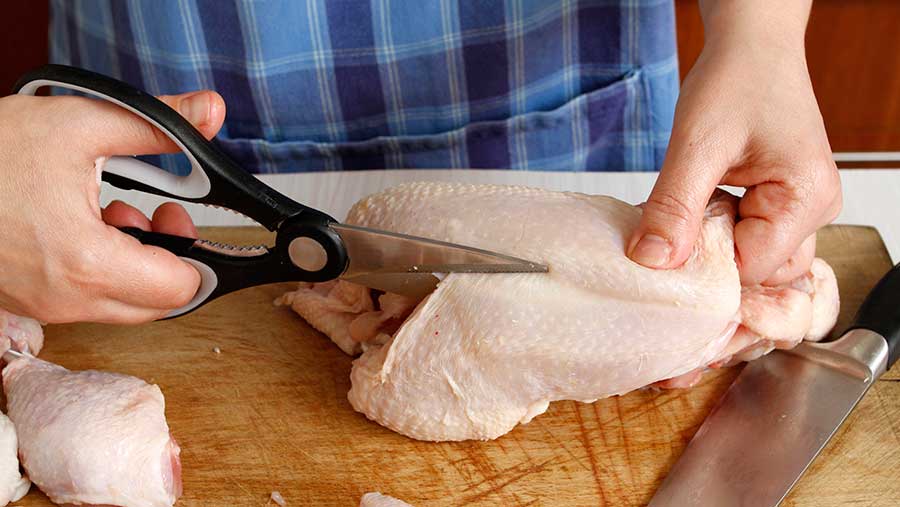Chlorinated chicken dispute could delay UK-US trade deal
 © Woman's Weekly/REX/Shutterstock
© Woman's Weekly/REX/Shutterstock A post-Brexit trade deal between the USA and UK could be delayed over concerns about chlorinated chicken, Michael Gove has warned.
The Defra secretary has pledged that UK animal welfare standards will not be compromised in order to strike a trade deal with the USA.
Giving evidence to the Environment, Food and Rural Affairs (Efra) committee, Mr Gove said he wanted Britain to agree a free trade deal with the USA, but he would have to ensure that food and animal welfare standards in the UK were protected.
See also: Guide to successful spray and water vaccination for poultry farmers
“We want to have a free trade deal but, of course, we need to have those protections, and if we can’t achieve protections in those areas then any deal will necessarily have a slightly narrower scope.”
Mr Gove was asked if disagreements over whether the UK should allow US imports of chicken washed in chlorine could hold up a trade deal.
“Yes,” he replied.
In recent weeks, reports have emerged of a Cabinet split on chlorinated chicken. International trade secretary Liam Fox is understood to be relaxed about allowing US imports of chlorinated chicken into the UK.
In the USA, processors routinely wash chicken carcases in a chlorinated solution. But this practice is banned in the EU, as are imports of poultrymeat that has been treated this way.
‘Uneven playing field’
Washing chickens in chlorine is a cheap way of killing bacteria, including campylobacter and salmonella. But health campaigners fear that relying on chlorine could lead to poorer hygiene standards.
The NFU is concerned that allowing US imports of chlorinated chicken to flood the UK would put British poultry farmers on an “uneven playing field” and force many to reduce standards in order to compete.
Mr Gove told Efra committee chair Neil Parish that he was working on EU withdrawal issues with Dr Fox and Brexit secretary David Davis, adding that they were “brothers from a different mother”.
He also promised that agriculture would not be “sold out” to Brussels during Brexit negotiations in favour of striking a good deal for bankers in the City of London.
